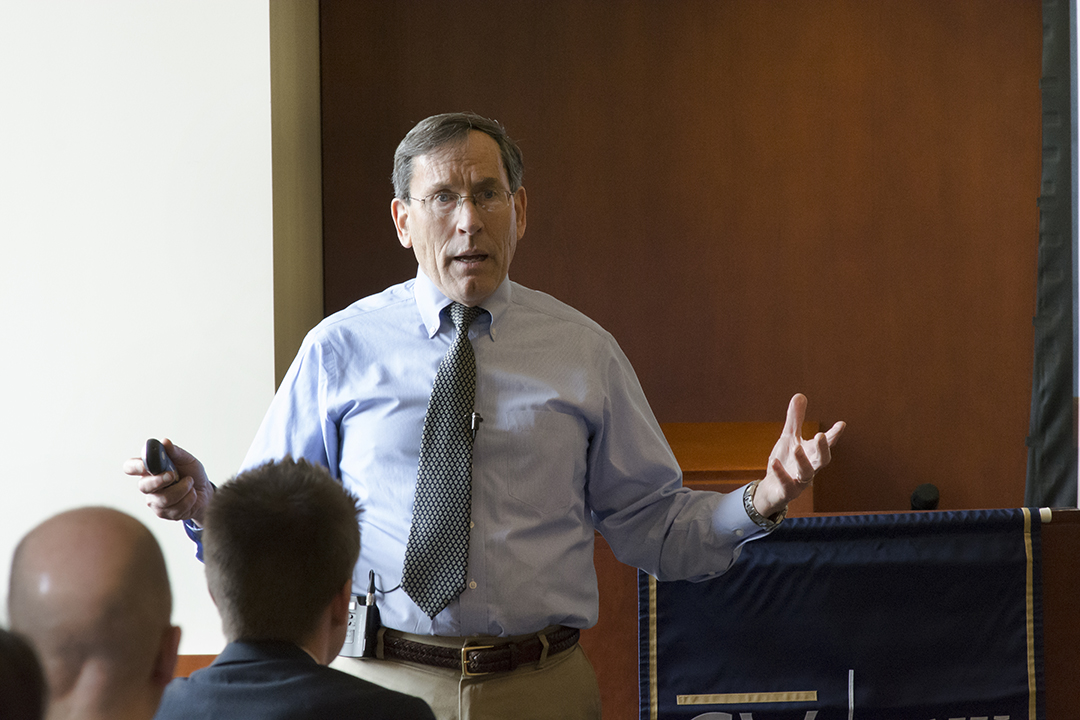The GW Law National Security LLM Program, National Security Law Association, and Military Law Society recently hosted Colonel (Retired, U.S. Army) Fred L. Borch, the Regimental Historian and Archivist for the Army Judge Advocate General's Corps, for a presentation and Q&A regarding the My Lai Tragedy that occurred during the Vietnam War in observance of its 50th anniversary. Colonel Borch described the events surrounding My Lai and the military justice response that followed.
On March 16, 1968, First Lieutenant William Calley, Jr. and his platoon murdered as many as 500 Vietnamese civilians at My Lai. Lieutenant Calley and his platoon were airlifted by helicopter to My Lai early in the morning and they expected to meet heavy Viet Cong resistance believed to be based in the small sub-hamlet. Instead of encountering the Viet Cong, they only found "unarmed, unresisting, and frightened old men, women, children, and infants." Between 7 am and 11 am, Lieutenant Calley and his men, largely on Lieutenant Calley's orders, murdered at least 300 civilians. These actions were then covered up by several officers in the Army.
After the tragic events that occurred at My Lai were uncovered in April 1969, four officers and two non-commissioned officers were eventually court-martialed by the Army for their direct involvement in the tragedy or its cover up. Only Lieutenant Calley was found guilty and was convicted on March 29, 1971 for the premeditated murder of twenty-two Vietnamese civilians and the assault with the intent to kill of a child. He received a sentence of confinement at hard labor for life and a dismissal from the Army. However, the confinement in his sentence was later reduced to ten years and he was eventually paroled in November of 1974. Lieutenant Calley maintained throughout his court-martial and as recently as 2009, that he was just following orders on that day in My Lai.
Colonel Borch said that one of the main lessons learned from the My Lai Tragedy and its subsequent cover up was that service members needed better training on their rights and obligations under the laws of war. He also said that to prevent similar tragedies, the U.S. military began assigning lawyers to accompany combat forces in the field.


